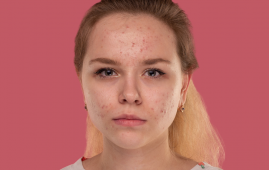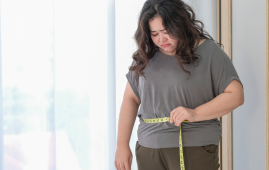

According to a news release from AstraZeneca, the FDA has approved benralizumab (Fasenra) for children with severe eosinophilic asthma who are between the ages of 6 and 11.1. In 2017, benralizumab was initially authorized for use as an adjuvant maintenance medication for treating asthma in people 12 years of age and above.
“We welcome additional treatment options for children living with severe asthma, a condition that remains complicated to manage, further helping to address the unmet need in this patient population and reducing the burden of disease for the broader asthma community,” The remark was made by Lynda Mitchell, MA, CAE, CEO of the Allergy & Asthma Network.
The most prevalent chronic illness in children is asthma, which causes breathing difficulties, wheezing, and coughing. Furthermore, asthma causes a great deal of stress for kids and their families and can lead to decreased quality of life, increased use of healthcare resources, and poorer school performance.
A monoclonal antibody called benralizumab attaches itself to the eosinophil’s IL-5 receptor alpha, attracting natural killer cells and causing the majority of the patient’s blood and tissue eosinophil counts to drop off quickly and almost entirely.
Benralizumab is currently approved in over 80 countries, including the US, Japan, and the European Union (EU). In the US, EU, and other nations, self-administration is also permitted.
Evidence from the phase 3 TATE study (NCT04305405), an open-label, global, nonrandomized, parallel assignment trial, and well-controlled trials involving adult and adolescent patients supported this additional indication for benralizumab.
Benralizumab was given to two patients in Japan, ages 12 to 14, and 28 children, ages 6 to 11, from the TATE research. The treatment was given over 48 weeks. The pharmacokinetics and pharmacodynamics of children aged 6 to 11 years were comparable with those observed in previous trials, and the study fulfilled its primary goals. In the phase 3 trial, benralizumab also demonstrated safety and tolerability, which were in line with the medication’s established profile.
With a frequency of 5% or less, headache and pharyngitis were the most frequent adverse effects. Furthermore, 2.2% of patients who got benralizumab experienced injection site responses, such as discomfort, erythema, pruritis, and papule, compared to 1.9% of individuals who received a placebo.
Benralizumab is prescribed at a dose of 30 mg for individuals 6 years of age and older who weigh 77.16 lb or more. Patients who weigh less than 77.16 lbs. between the ages of 6 and 11 will also have access to a new 10-mg dose. Subcutaneous injection of benralizumab is given every 4 weeks for the first 3 doses and then every 8 weeks after that.
“We’re proud that Fasenra has helped more than 100,000 patients in the US to date,” stated in the announcement by Liz Bodin, vice president of AstraZeneca’s US Respiratory & Immunology division. “Expanding options for children whose quality of life has been drastically impacted by severe eosinophilic asthma with the help of Fasenra is an exciting step in our mission to revolutionize asthma care.”
For more information: Benralizumab in children with severe eosinophilic asthma: Pharmacokinetics and long-term safety (TATE study), Pediatric Allergy and Immunology, https://doi.org/10.1111/pai.14092
more recommended stories
 Neurocardiac Connectivity in Depression Treatment
Neurocardiac Connectivity in Depression TreatmentHeart rate deceleration and sadness may.
 Antioxidants: Impact on Quality of Life in Acne Vulgaris
Antioxidants: Impact on Quality of Life in Acne VulgarisA recent study published in the.
 Palliative Care Disparities for Opioid Users: Study Findings
Palliative Care Disparities for Opioid Users: Study FindingsIn contrast to individuals devoid of.
 Brain Pulsations Linked to High BMI
Brain Pulsations Linked to High BMIAccording to a new study from.
 Brain Age Estimation: EEG Advancements in Neurology
Brain Age Estimation: EEG Advancements in NeurologyTo estimate brain age using EEG.
 Unlocking Ketogenic Diet for Epilepsy Management
Unlocking Ketogenic Diet for Epilepsy ManagementExploring the Therapeutic Potential of Ketogenic.
 Senescence in Neurons: Findings
Senescence in Neurons: FindingsBased on a new study by.
 Balanced Diet Linked to Enhanced Brain Health
Balanced Diet Linked to Enhanced Brain HealthDiet and brain health are strongly.
 Acid-Reducing Drugs Linked to Higher Migraine Risk
Acid-Reducing Drugs Linked to Higher Migraine RiskIndividuals who utilize acid-reducing drugs may.
 Atrial Fibrillation in Young Adults: Increased Heart Failure and Stroke Risk
Atrial Fibrillation in Young Adults: Increased Heart Failure and Stroke RiskIn a recent study published in.

Leave a Comment